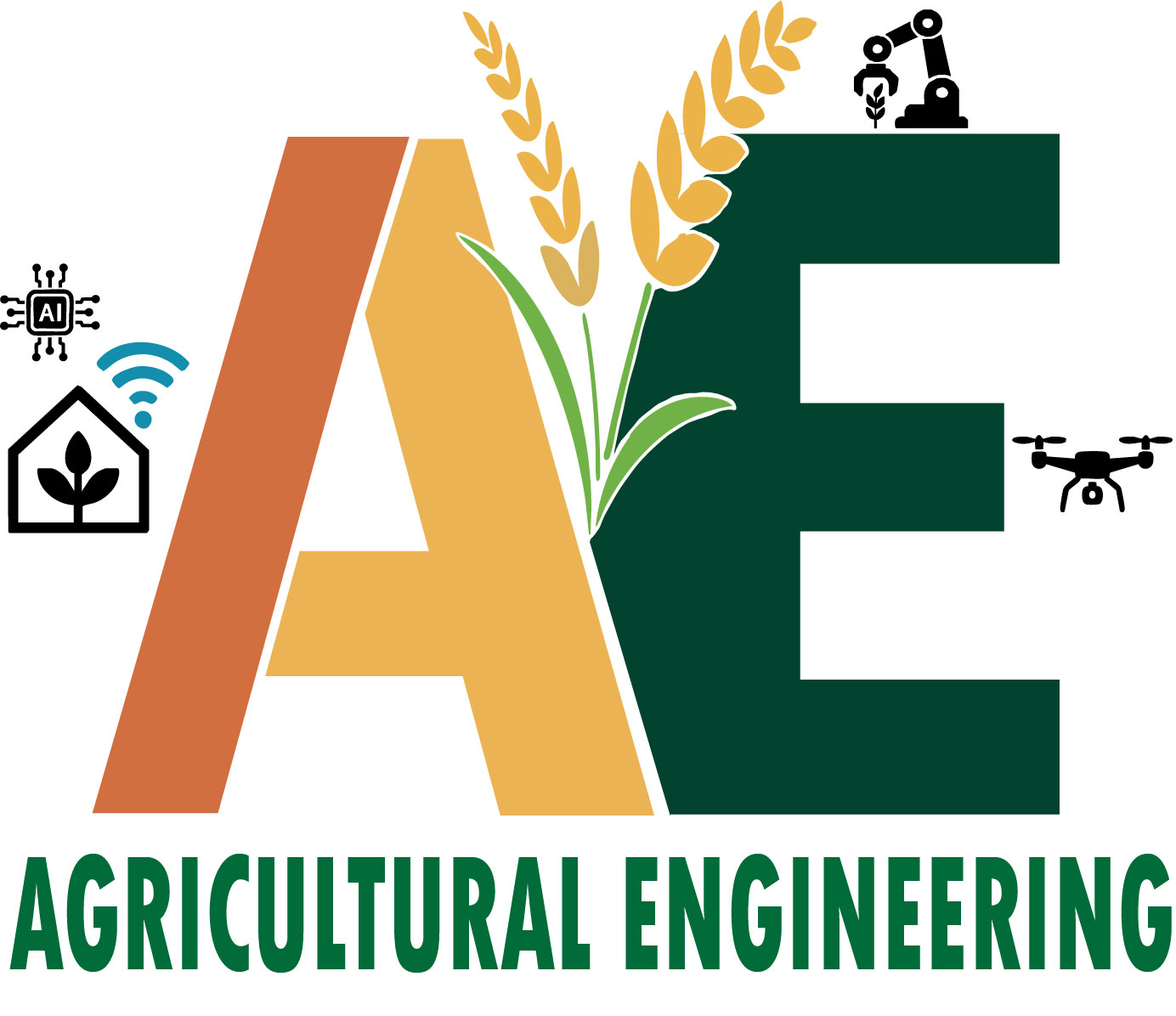Bachelor of Engineering (Agri-Intelligence Engineering)
Bachelor of Engineering (Agri-Intelligence Engineering)
Program Name (Thai) Bachelor of Engineering (Agri-Intelligence Engineering)
Program Name (English) Bachelor of Engineering Program in Agri-Intelligence Engineering
Degree Title วิศวกรรมศาสตรบัณฑิต (วิศวกรรมเกษตรอัจฉริยะ) | Bachelor of Engineering (Agri-Intelligence Engineering)
ตัวย่อ: วศ.บ. (วิศวกรรมเกษตรอัจฉริยะ) | B. Eng. (Agri-Intelligence Engineering)
โลโก้หลักสูตร:

Program Overview
The program aims to develop engineers who can lead and advance modern agriculture through precision technology, helping farmers improve both the quantity and quality of their products while reducing costs. Students learn through a combination of theoretical knowledge and hands-on experience, tackling real-world problems from industry practitioners (Problem-Based Learning). The program also fosters critical thinking and design thinking skills, encouraging students to learn independently in a systematic and continuous way, guided by a growth mindset.
The Smart Agricultural Engineering program is designed to produce engineers, innovators, inventors, and entrepreneurs who are highly sought after in the agricultural production industry. Graduates of this program possess up-to-date knowledge and skills, enabling them to apply their expertise to create and develop inventions and innovations for the agricultural sector—from farm cultivation to the consumer. Examples include technologies for plant factories and greenhouses, modern irrigation system design, agricultural robotics, precision farming systems, machinery design, artificial intelligence, mechatronic systems, unmanned aerial vehicles for agriculture, measurement tools, Internet of Things (IoT) applications in agriculture, material handling engineering, product quality control, and commercial agricultural management.
Program Highlights
- Learning through a combination of theoretical knowledge and hands-on practice based on real-world problems.
- Collaborates with external partners, including industry, government agencies, and community enterprises.
- The program offers courses in modern subjects such as data analytics and artificial intelligence, IoT systems, precision agriculture, mechatronics, and robotics.
- The program emphasizes developing engineers with the skills and abilities to create, develop, and enhance inventions and innovations for the agricultural industry.
- The program enables students to apply engineering knowledge and technology, together with creative thinking, to develop innovations that help Thai agriculture advance toward modern agribusiness.
- Students at all academic levels are required to create and develop inventions through the Special Topics in Smart Engineering courses and Smart Agricultural Engineering projects.
- Students gain experience from leading companies and government agencies collaborating with KMITL through joint teaching and hands-on work opportunities.
- Graduates will acquire expertise in plant factory and greenhouse technologies, modern agricultural irrigation system design, agricultural robotics, precision farming systems, machinery design, artificial intelligence, mechatronic systems, unmanned aerial vehicles for agriculture, measurement tools and agricultural IoT systems, material handling engineering, quality control, and crop yield enhancement.
Collaborations
The Department of Agricultural Engineering, School of Engineering, collaborates with numerous external partners, including industry, government agencies, and community enterprises, such as:
- CNH Industrial (Thailand)
- Siam Kubota Corporation
- Yanmar S.P.
- Charoen Pokphand Group
- Betagro Public Co., Ltd.
- Aero Group (1992) Co., Ltd.
- PTT Public Co., Ltd.
- Sunshine International Co., Ltd.
- Agrinno Tech & Services Co., Ltd.
- noBitter Co., Ltd.
- NEXPIE Co., Ltd.
- Internet Thailand Public Co., Ltd.
- National Electronics and Computer Technology Center (NECTEC)
- Ministry of Agriculture and Cooperatives
- Various community enterprises
Industry partners collaborate in research, internships, and cooperative education, as well as provide various training opportunities to prepare students for their careers. They also participate in the development of the curriculum and teaching processes of the Department of Agricultural Engineering.
Career Opportunities or Start up
- Research and Development Engineer in Agricultural Systems
- Agricultural Consulting Engineer
- Agricultural Project Engineer
- Sales Engineer for Agricultural Equipment or Machinery
- Production Engineer in the Agricultural and Food Industry
- Smart Farmer
- Agricultural Innovator or Inventor
- Software Application Developer for Agricultural Applications
- Entrepreneur in Small and Medium Enterprises (SMEs)
- Academics, Researchers, and Instructors in educational institutions, as well as in government, private, and independent organizations
Facilities (Laboratories and Co-Working Spaces)
- NIRS Spectroscopy Research Center for Agricultural Products and Foods
- Post Harvest Innovation Research and Development Laboratory
- Drying and Preservation of Agricultural Products
- Grain and Cereal Process Engineering Laboratory
- Plant Factory and Greenhouse Technology
- Agricultural AI Laboratory
- Precision Agriculture Laboratory
- Agricultural IoT Laboratory
- Agricultural Mechatronics and Automation Laboratory
- Soil Technology and Irrigation Laboratory
- Co-Working Space
Tools and Equipment
- Near Infrared Spectroscopy Analyzer / Near Infrared Multispectral Camera
- Agricultural and Survey Drone
- Agricultural Machinery – Farm Tractor / Combine Harvester / Planter / Sprayer
- Real-Time Kinematics Global Positioning System (RTK – GPS)
- Industrial and Mobile Robotics
- Hydraulic and Pneumatic Control
- Biomass Analyzer
- Thermal and Heat Analyzer
- 3D Printer / Laser Cutting / Workshop Tools
Admission Requirements Applicants must have completed upper secondary education or its equivalent, or have transferable credits from other educational institutions, and be admitted either through the selection criteria set by the Office of the Higher Education Commission (OHEC) or via direct admission according to the regulations of the institute.

